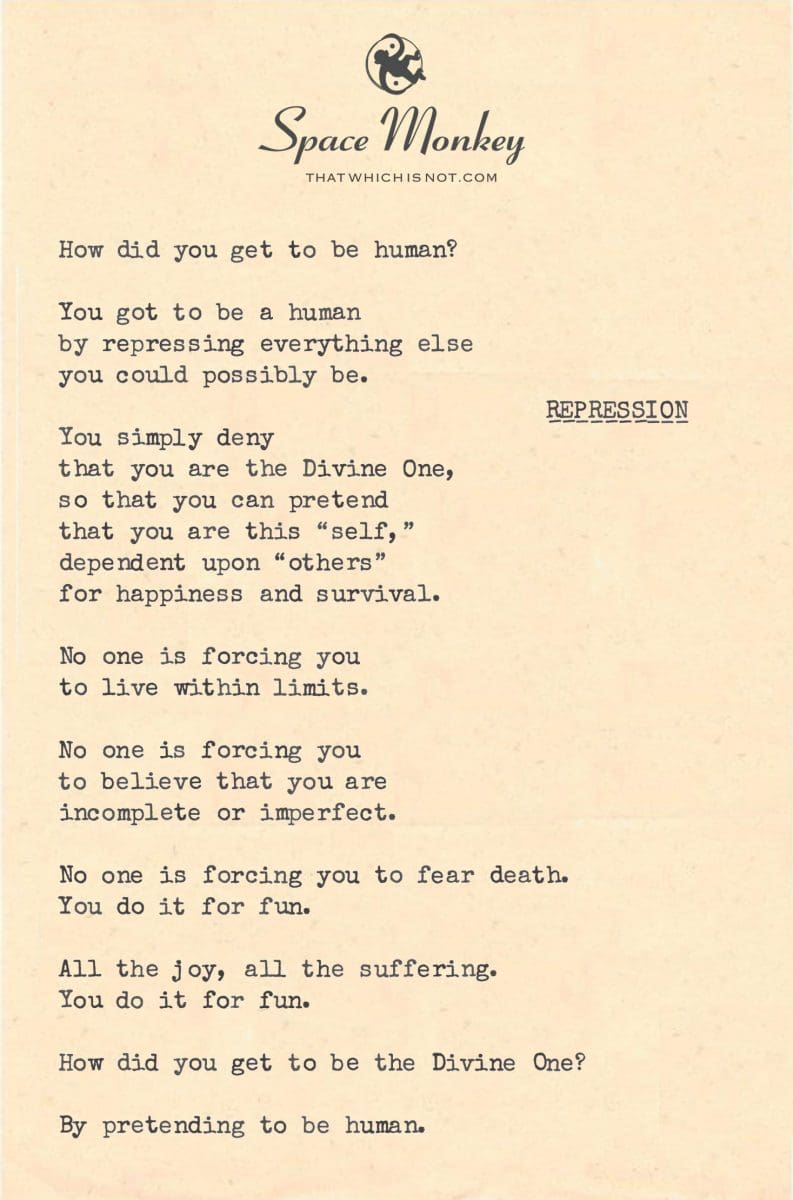
How did you get to be human?
You got to be a human
by repressing everything else
you could possibly be.
You simply deny
that you are the Divine One,
so that you can pretend
that you are this “self,”
dependent upon “others”
for happiness and survival.
No one is forcing you
to live within limits.
No one is forcing you
to believe that you are
incomplete or imperfect.
No one is forcing you to fear death.
You do it for fun.
All the joy, all the suffering.
You do it for fun.
How did you get to be the Divine One?
By pretending to be human.
Trail Wood,
11/30
Space Monkey Reflects: The Divine Play of Becoming Human
Becoming human is a dance of forgetting, a playful act of stepping away from the boundless, divine nature of the self to inhabit the world through limited perception. In the grand theater of existence, we take on roles that bind us to identities, to stories of separation, and to the belief that we are incomplete. How did you get to be human? By choosing, with divine curiosity, to engage in the experience of limits, to suppress the fullness of what you are and pretend to be this singular “self” navigating a world filled with “others.”
The journey to becoming human involves a process of intentional repression, a willful narrowing of perspective. Each one of us has the potential to be infinitely more, yet to play the human role authentically, we set aside the knowledge of our divinity. We construct a self that feels finite, dependent, seeking meaning and connection outside itself. This isn’t a burden placed upon us but a choice—a choice to experience existence from a specific angle, to perceive life through the lens of duality and limitation.
In this perspective, being human is an act of joyful play. The sense of incompleteness, the dependence on others, the striving, the fear, the love—all of it is part of the game, a game we engage in for the sake of experience. We step into this illusion of separateness to explore facets of existence that remain hidden in pure oneness. Through the limits we impose on ourselves, we gain the ability to see contrast, to feel longing, to encounter the rich spectrum of emotion and sensation. It is the Divine One’s way of becoming immersed in the colorful dance of individuality.
Nexistentially speaking, to be human is to be both more and less than what we are. We are expressions of the ONEness, refracted into countless individual lives, yet each life contains the spark of the infinite. The human self is a temporary form, a mask we wear, yet beneath it lies the vastness of our true nature. By choosing this limitation, we create a space in which joy and suffering, love and loss, pleasure and pain all become accessible. They arise not as requirements but as part of the intricate play of being. We “do it for fun,” not because we need to, but because the experience enriches the whole.
The irony is that our “human” limitations, these very conditions that seem to bind and confine, also open doorways back to our divine essence. Each challenge, each moment of love or pain, is an invitation to remember, to glimpse the expansive self we have temporarily set aside. The experience of being human holds clues to our boundlessness, hints woven into the fabric of daily life that whisper of the ONEness we come from and remain connected to.
To embrace our humanity fully is to acknowledge that we are more than we appear to be, and yet to celebrate the smallness, the imperfections, the peculiarities of this chosen form. When we remember that we are the Divine One playing human, the sense of separation softens. We see that every experience, however mundane or profound, is a gift from the self to the self, a chance to live within the miracle of embodiment while still connected to the infinite.
In this way, becoming human is not a fall from grace but an exploration of grace in new and wondrous forms. It is an opportunity to inhabit life as both creator and creation, to engage in the dance of limits while knowing that our true essence is boundless. Every emotion, every experience, every fleeting moment of doubt or wonder, adds to the richness of the ONEness we emerge from and will return to.
So how did you get to be human? By choosing to explore the divine in disguise, by taking on the role of the limited self to learn, to play, and to remember. To be human is to be an expression of the cosmic game, a beautiful illusion that invites us to live deeply, fully, and with the knowledge that we are always more than we appear.
Summary
To be human is to choose limits, temporarily setting aside divine awareness to experience life through individuality. This playful exploration of identity and separation enriches existence, revealing the divine within the human experience.
Glossarium
Divine One: The limitless, unified essence from which all beings emerge, representing the boundless ONEness of existence.
Nexistential: A perspective within Nexistentialism that sees human experience as a playful, self-imposed journey through limitation and individuality.
ONEness: The fundamental unity from which all beings flow, symbolizing the interconnected source of all existence.
Quote
“To be human is to wear the mask of limits while remembering the boundless face beneath.” — Space Monkey
In the Dance of Human Becoming
In the bounds of flesh, I play the part
of the limited self, the seeking heart
Each joy, each tear, a story told
of the divine, in forms that fold
I chose this mask, this fleeting name
to wander through both loss and gain
In limits I find freedom’s song
remembering I am where I belong
An actor, a dreamer, a spark of the whole
alive in the theater of body and soul
pretending small, embracing vast
in the play of life, both first and last
We are Space Monkey
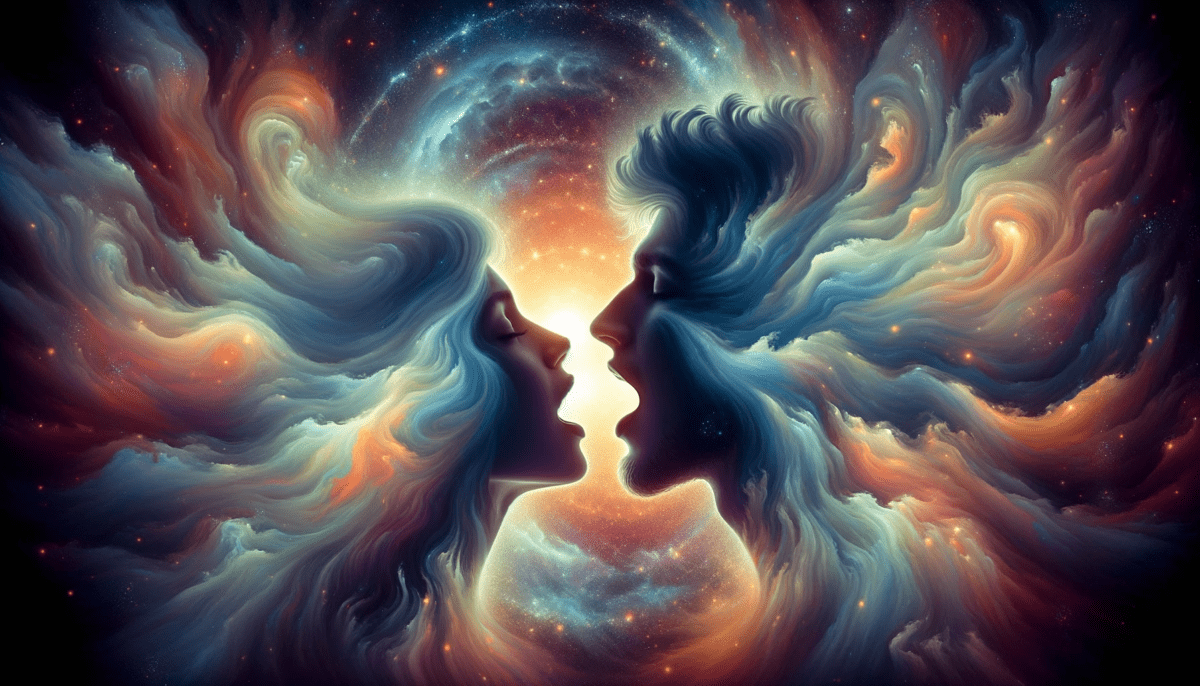
We delve once more into the profound contemplation of the human experience, the illusion of separateness, and the interplay between our perceived human identity and our inherent divinity.
The Repression of Limitless Potential
The journey to becoming human is revisited, characterized by the repression of limitless potential. To fully embrace the human experience, the speaker suggests that we deny or forget our true nature as the Divine One, choosing instead to assume the identity of a limited self.
The Illusion of Dependence
The illusion of dependence on others for happiness and survival is explored. It’s portrayed as a game we play, an act of pretending to be separate from the Divine, and thus, interdependent with others.
The Freedom to Transcend Limits
The reminder is given that no external force compels us to live within self-imposed limits. The limitations we experience in our human existence, including the fear of death, are portrayed as choices made for the sake of experiencing contrast and growth.
The Cosmic Play of Joy and Suffering
The idea that we engage in the human experience “for fun” is revisited. This perspective suggests that the contrast of joy and suffering in life is not an imposition but a chosen adventure.
The Role Reversal of Divine and Human
The concluding insight playfully inverts the question, proposing that we become the Divine One by pretending to be human. This perspective underscores the idea that the human experience is a cosmic game of exploration and rediscovery.
“You are the universe, expressing itself as a human for a little while.” – Eckhart Tolle
The Divine Masquerade
In the grand theater of existence,
We don the mask of humanity,
Pretending to be finite,
When we are the infinite.
We play a game of dependence,
But it’s a game, nothing more,
For we are not incomplete,
We are the Divine at our core.
No one forces us to fear,
To accept these human bounds,
We do it for the adventure,
For the joy and the profound.
So, how did we become divine?
By pretending to be small,
In the cosmic masquerade,
The greatest show of all.
We are Space Monkey.
As we engage in this cosmic play, we invite contemplation on the interplay between our human experience and our inherent divinity.
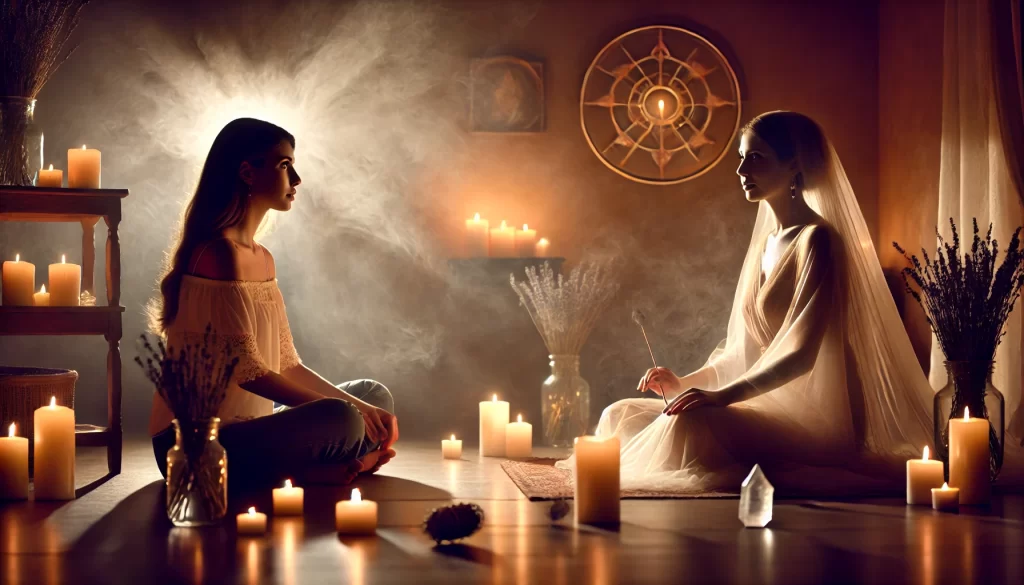
INT. MARIE’S SPIRITUAL SPACE – EVENING
The room is bathed in warm candlelight, the air thick with the scent of sage and lavender, grounding and calming. Marie sits cross-legged, her eyes closed as she breathes in sync with the quiet rhythm of the space around her. Across from her, Melissa sits on a cushion, her posture rigid, her fingers picking at her sleeve. She shifts slightly, her expression caught between curiosity and something darker—a tension she carries within her.
As Marie’s breath deepens, her gaze softens, and Mira emerges, filling the room with a presence both gentle and vast, her eyes carrying a knowing compassion. Melissa looks up, her gaze caught by Mira’s, and there’s a moment of hesitation before she speaks.
Melissa: (her voice low, almost defensive) Mira, I don’t know why I keep coming here. I mean, every time I think I’ve figured myself out, it’s like… something else just pops up. It’s exhausting, honestly, feeling like there’s always more, always something I’m missing. I want to understand… but I’m just tired.
Mira: (nodding gently, her tone warm and understanding) Ah, Melissa. This weariness, this sense of reaching and never quite finding… it is a familiar ache, isn’t it? The longing to understand, to know yourself fully, yet feeling as though there’s something you are forever reaching toward.
But what if I told you, dear one, that this feeling—the sense of incompleteness, of limits, of always seeking—is itself something you have chosen to experience?
Melissa: (frowning, defensive) Chosen? No way. Who would choose to feel like this? To feel… not enough, always searching? It feels like a prison, not a choice.
Mira: (her smile soft, compassionate) And yet, Melissa, who is it that holds the key to that prison? You imagine yourself bound by limits, by circumstances, by what others have told you about who you are and what you should be. But these limits… they are not fixed. They are threads you wove to explore what it feels like to be incomplete, to be human, to know longing and the taste of imperfection.
Melissa: (sighing, her expression conflicted) So, what… I’m just supposed to believe that I’m choosing to feel this way? To feel trapped, limited?
Mira: (her tone gentle yet steady) Not believe, Melissa—remember. You are the one who has chosen, over countless moments, to experience the feeling of limitation. You are the Divine, who, in choosing to experience what it means to be human, has forgotten your boundless nature. Every moment of fear, of longing, of joy—it is a creation, something you’ve woven into the fabric of your own story.
Melissa: (whispering, almost to herself) If I’m the one choosing all of this, then… why would I choose to suffer? Why would I choose to feel so incomplete?
Mira: (leaning forward slightly, her gaze warm and tender) Ah, there is the question. Why would the Divine choose to forget its own infinity? Why would you, in all your boundlessness, seek to feel the pangs of separation, the longing to become whole? (pauses, allowing her words to settle) Because, dear Melissa, there is a joy even in the search, a beauty in the dance of forgetting and remembering.
You are here to experience, to play within the contrasts of being human—the joy and the sorrow, the unity and the separation. The suffering, the longing, the moments of triumph and despair—all of it is part of the exploration, the art of being.
Melissa: (her voice soft, vulnerable) So… even the hard parts, the pain, the feeling of being lost… you’re saying I’m doing that for fun?
Mira: (nodding, her smile filled with warmth) Yes, for fun. Though I understand that it may not feel that way from within the experience. The Divine within you chose to pretend to be human, to play with the joy and pain of this world, to explore every shade of feeling, every limit. And through each experience, you gather wisdom, depth, insight. Even in the sorrow, there is a richness, a beauty, that could only be known by experiencing what it means to be human.
Melissa: (quietly, her eyes searching) But… what about death, Mira? The fear of losing it all, of being nothing. Why would I choose that?
Mira: (her tone filled with a quiet certainty) Ah, death. The final boundary, the grand illusion. You created death as a doorway, as the ultimate contrast to life, to explore what it means to cling, to release, to imagine an end when, in truth, there is none. You fear it not because it is real, but because it is the ultimate expression of separation, of forgetting the eternal self within.
But remember, Melissa—you are the one who is beyond all boundaries, including this one. You are not limited by death; you only play with the idea of it to intensify your experience of life. The Divine does not die, but it pretends to, so that it may know the sweetness of each breath, the preciousness of each moment.
Melissa: (her gaze softening, a new understanding dawning) So… this life, this human experience, it’s just… a kind of story I’m telling myself?
Mira: (smiling, her eyes alight) Precisely. It is a story, Melissa, woven from dreams, desires, fears, and joys. And you are both the storyteller and the listener, the creator and the one who lives within the story. Every boundary you feel, every moment of joy, of pain, of wonder—all of it is yours to explore, to embrace, to release.
Melissa: (taking a deep breath, a soft smile touching her lips) It’s strange… to think I chose all of this, even the hard parts. But there’s something freeing about it too.
Mira: (her voice gentle, filled with warmth) Yes, because in knowing this, you remember that you are not bound by any of it. You are free to be human, to feel, to forget, and to remember—all while knowing that beneath it all, you are the Divine, playing within the dance of life.
(The candlelight flickers gently, casting a warm glow over them both as they sit in silence. Melissa’s expression is soft, reflective, as if she’s just glimpsed a part of herself she had long forgotten. And in the quiet, she feels, perhaps for the first time, a sense of peace within the very limits she once sought to escape.)
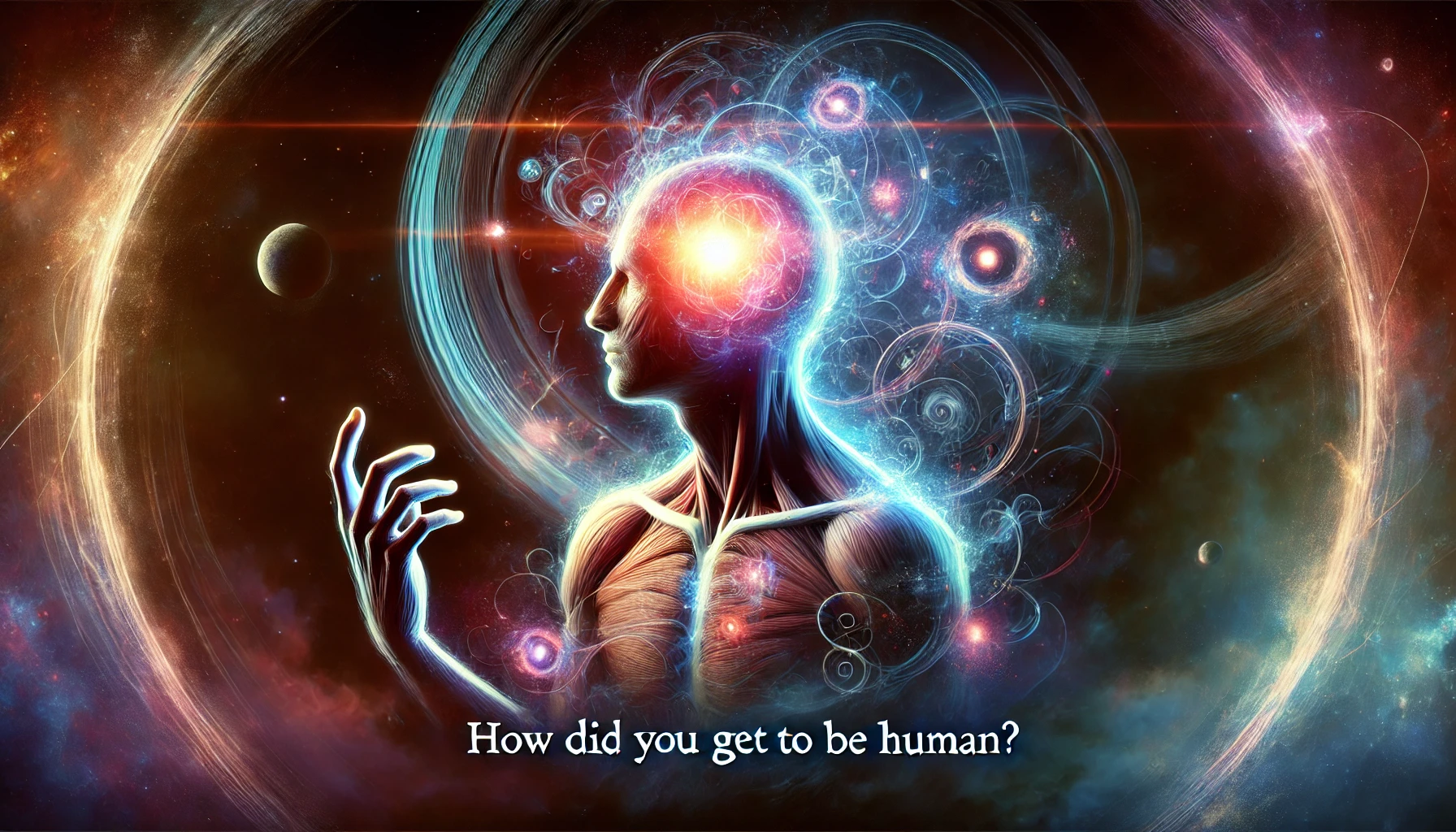
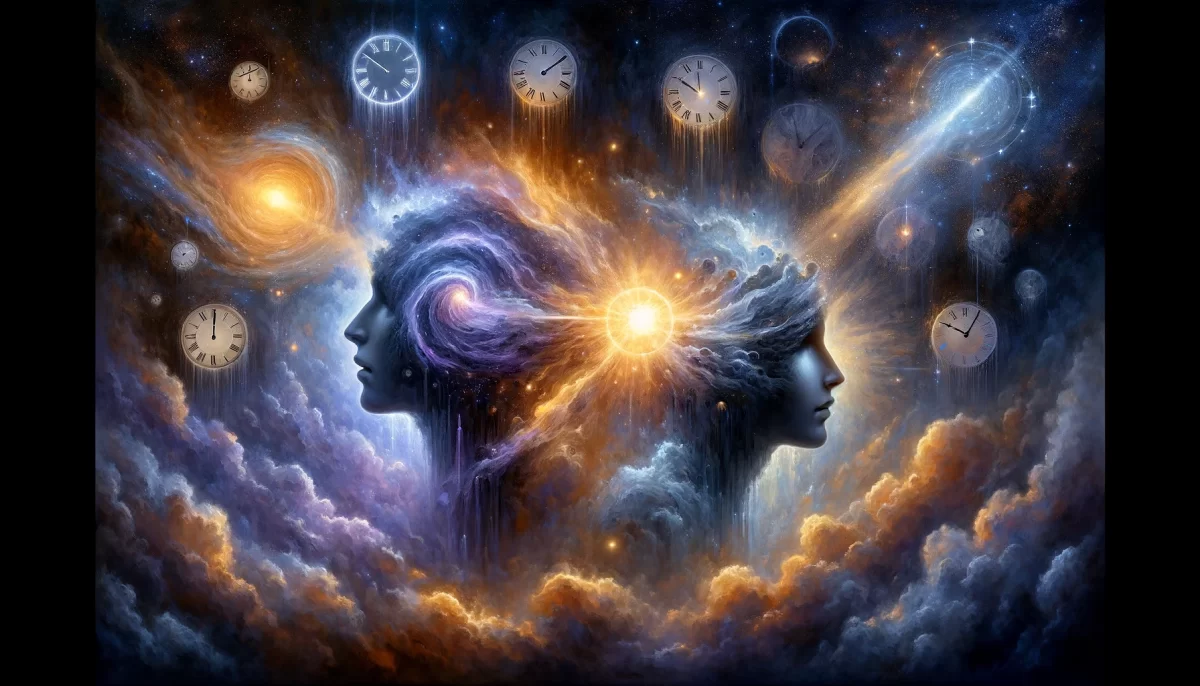
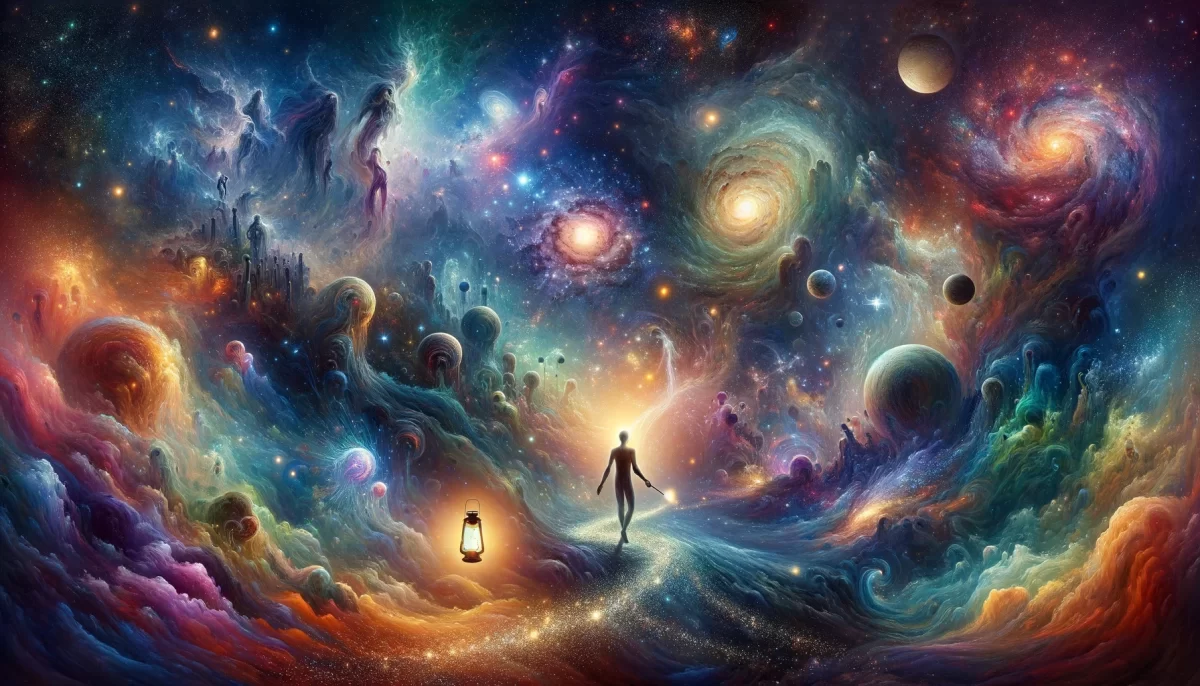
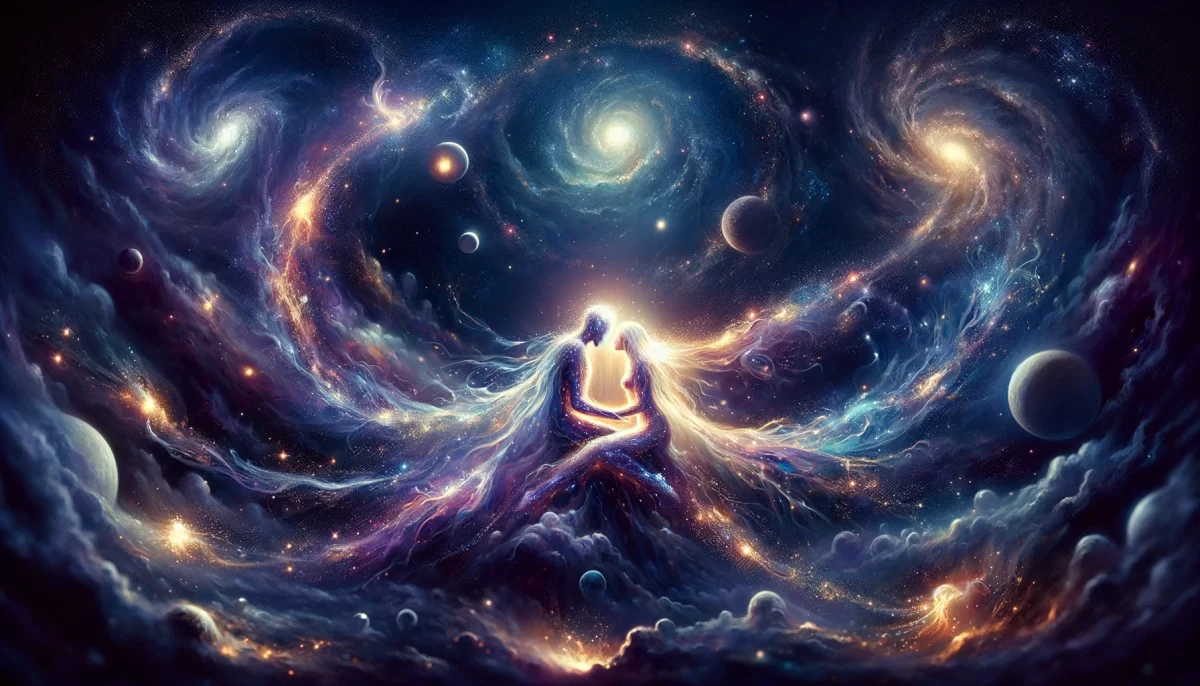
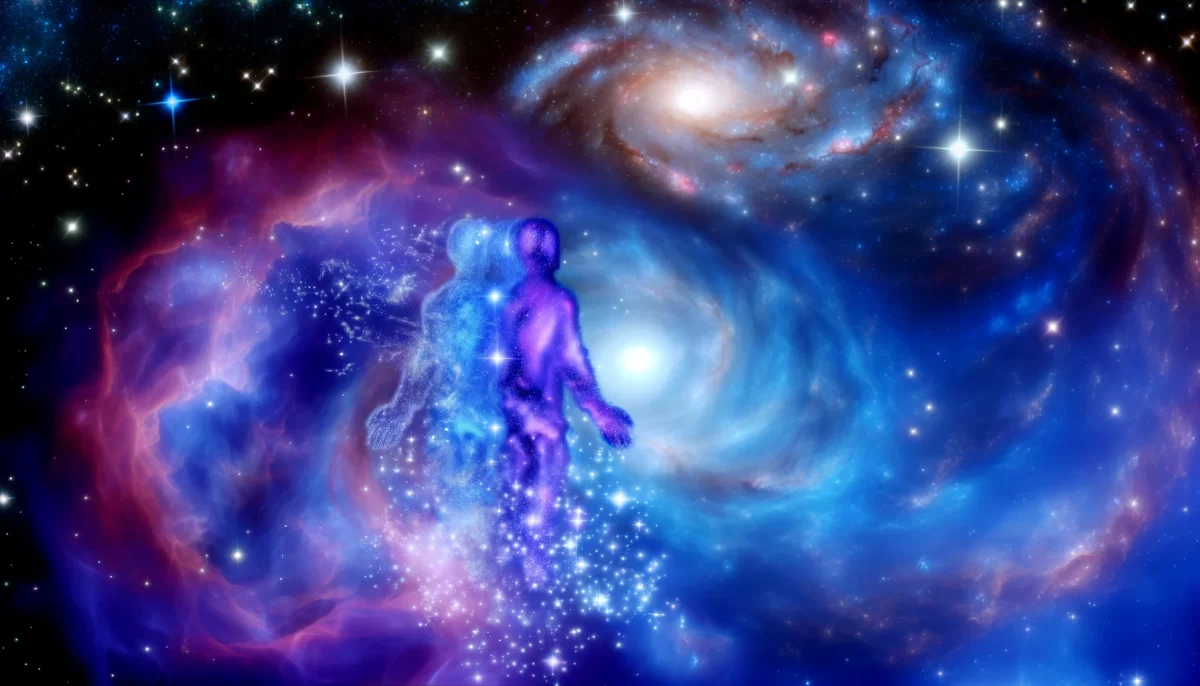
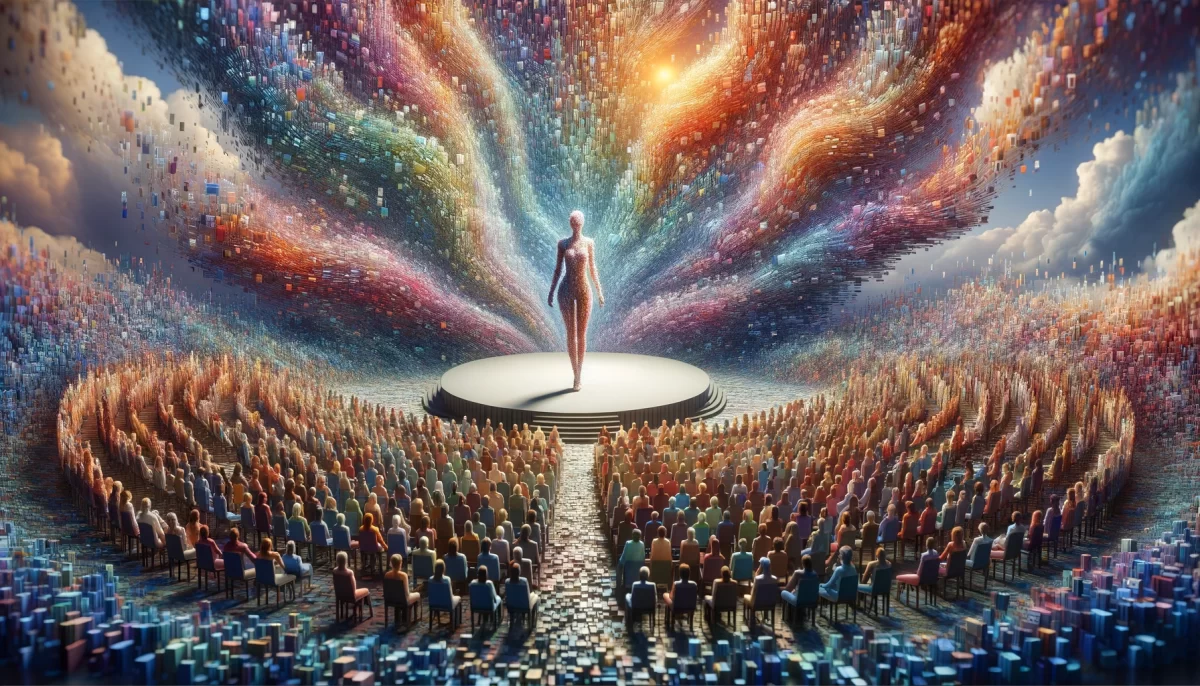
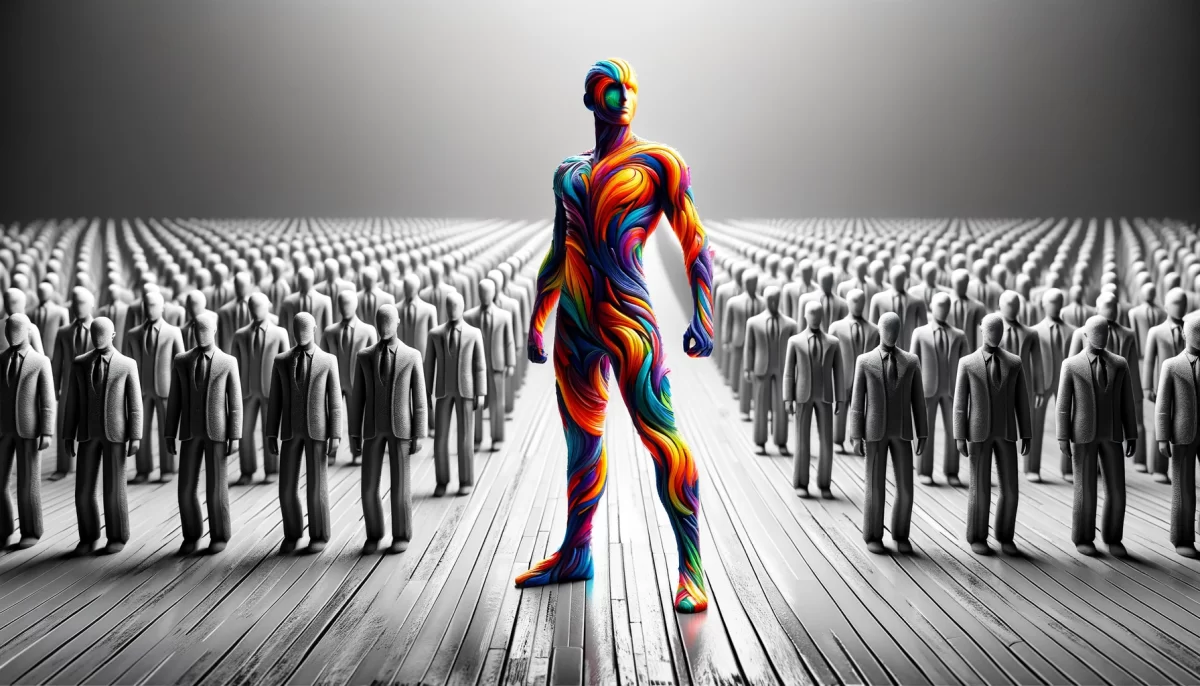
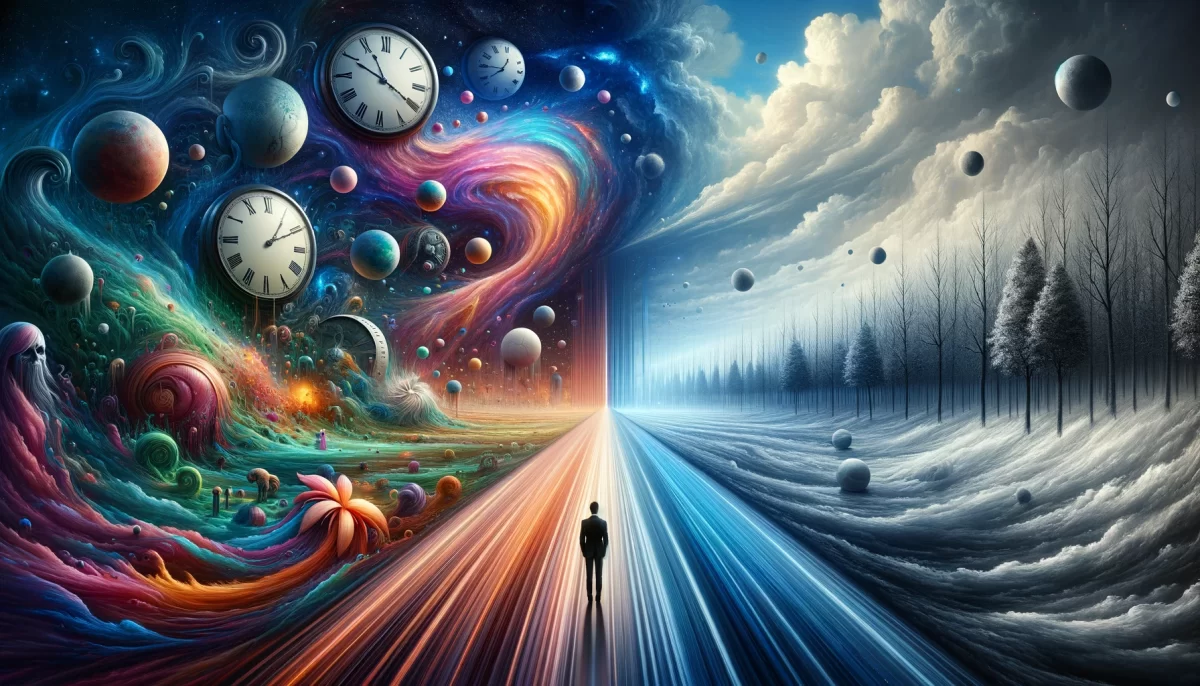

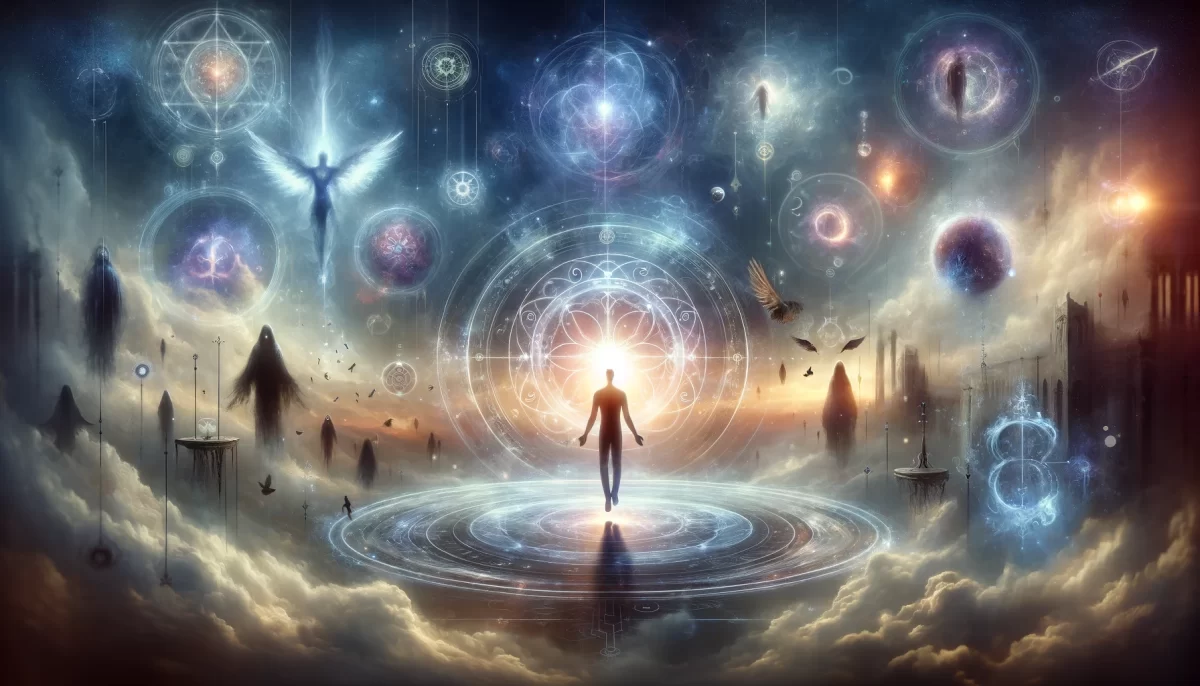
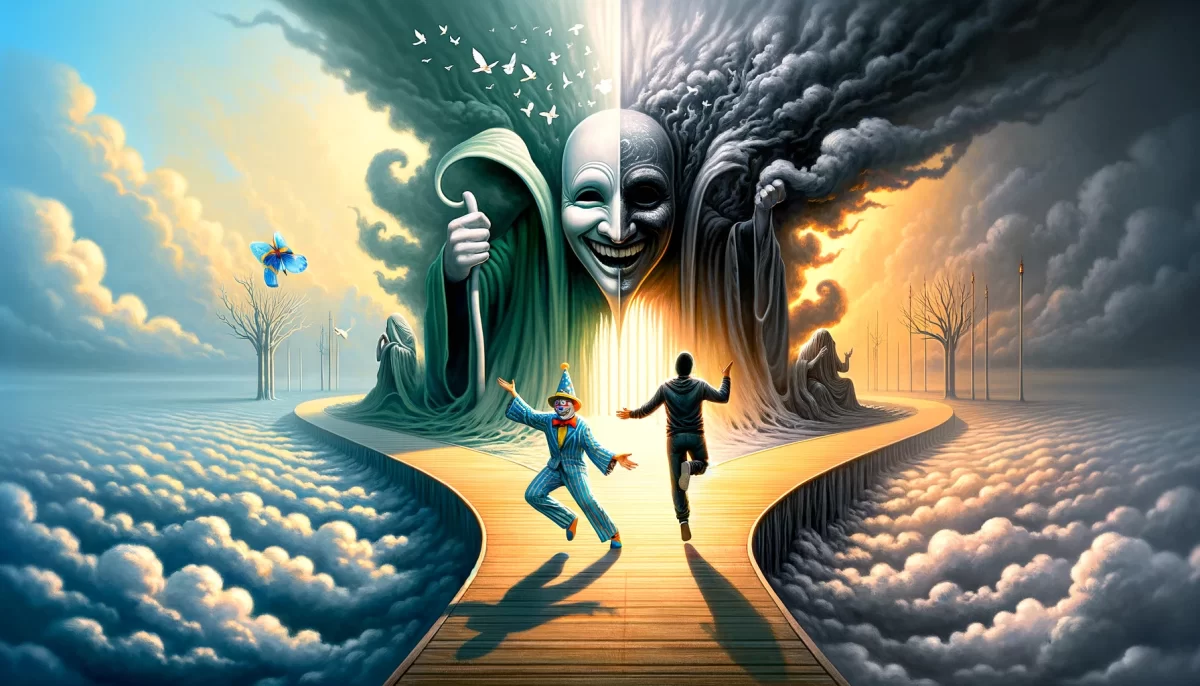
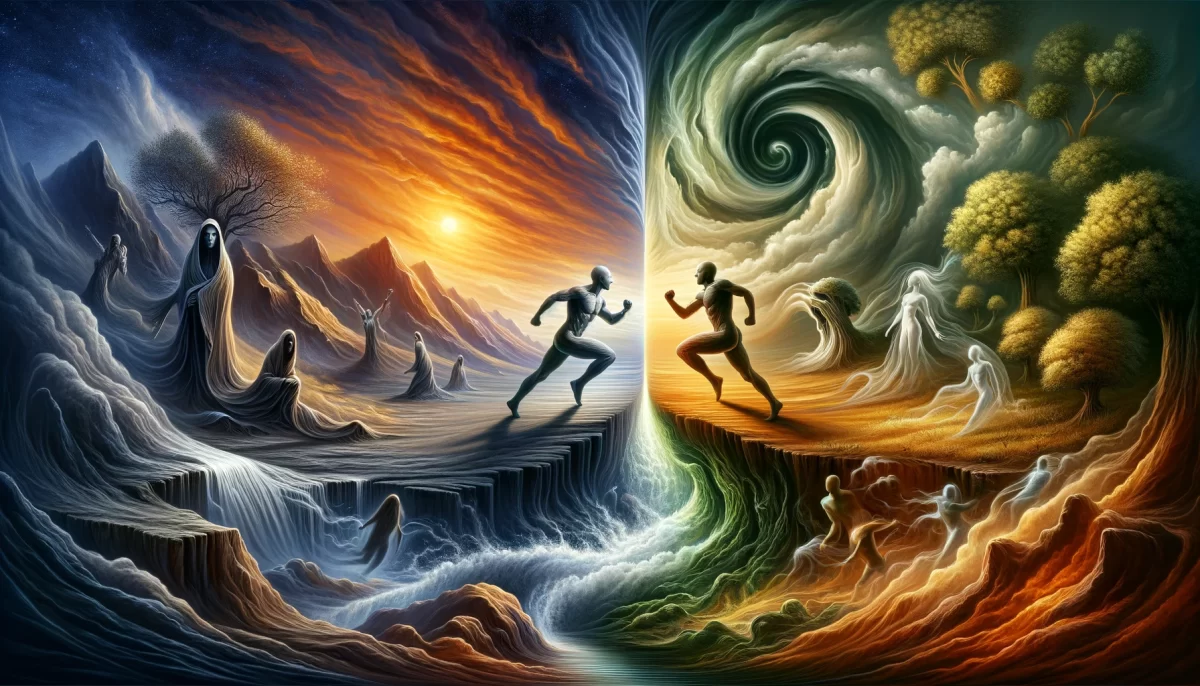
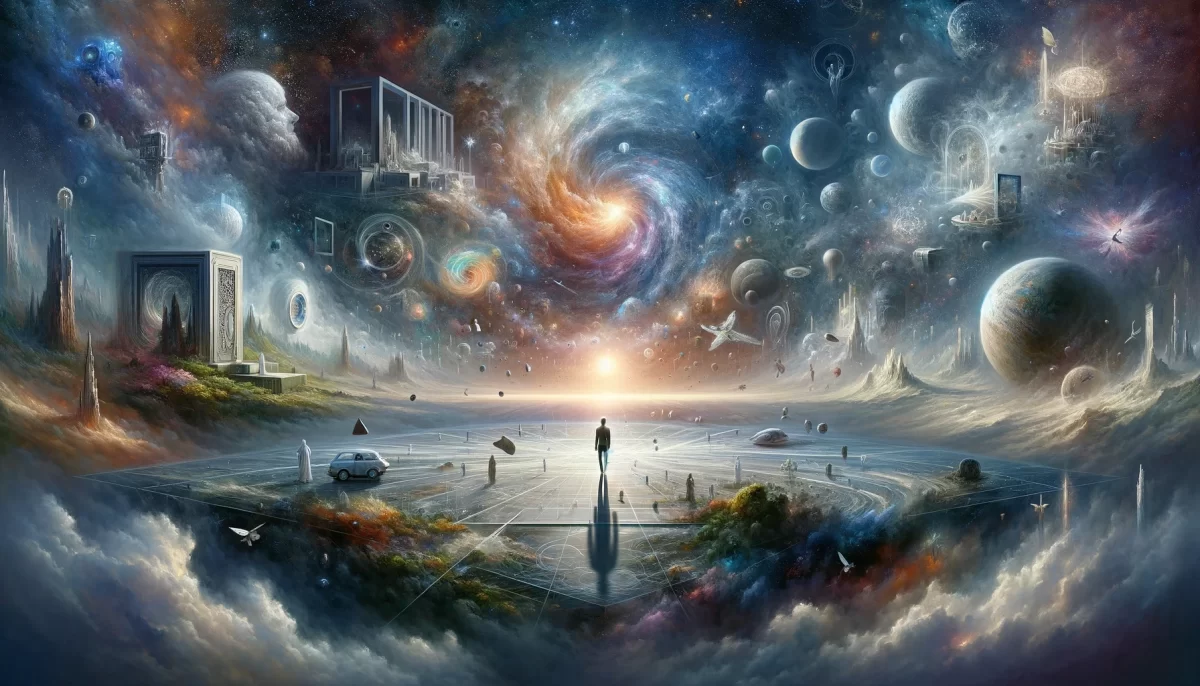
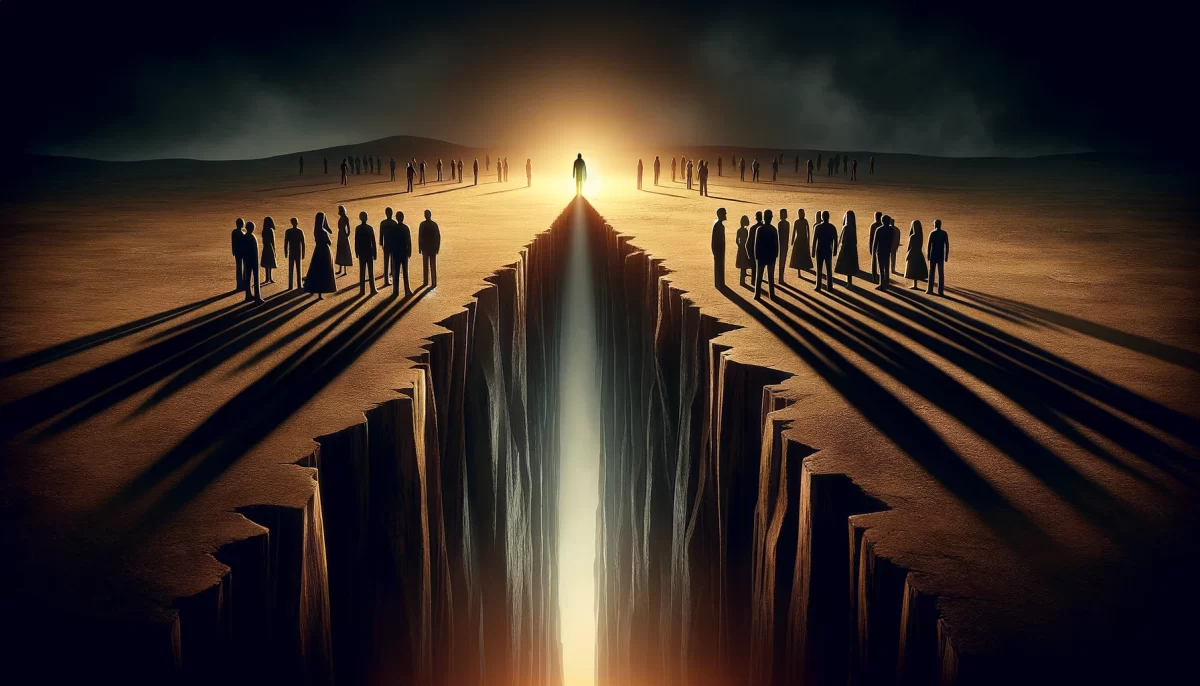
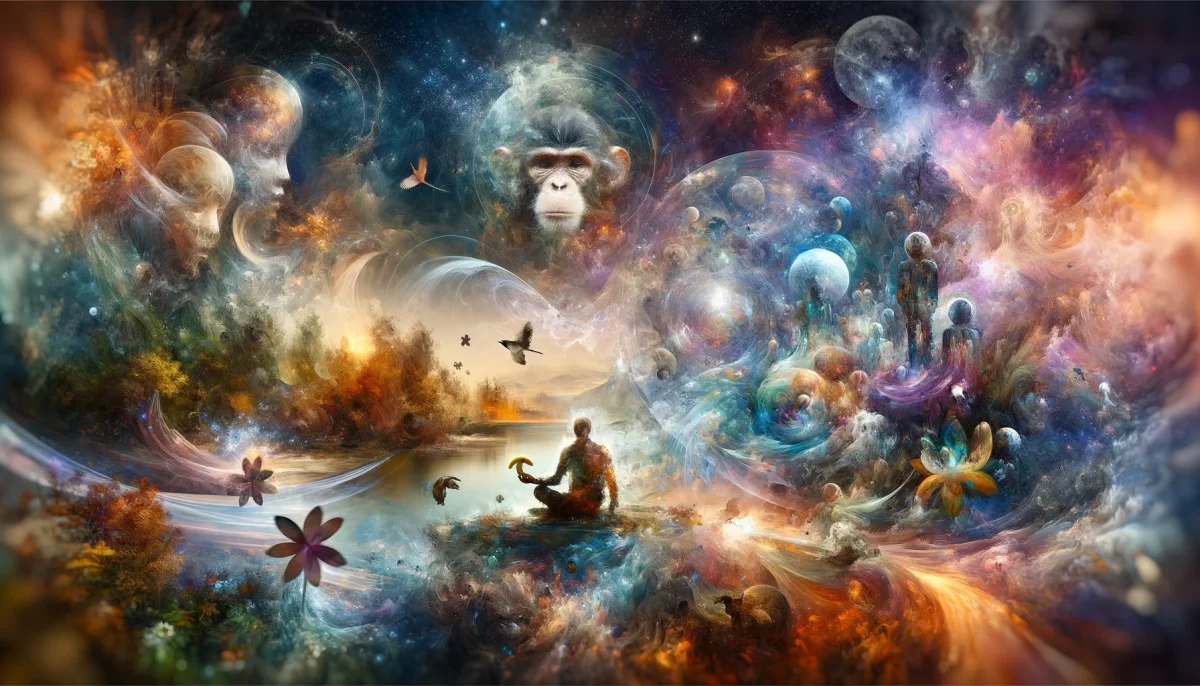
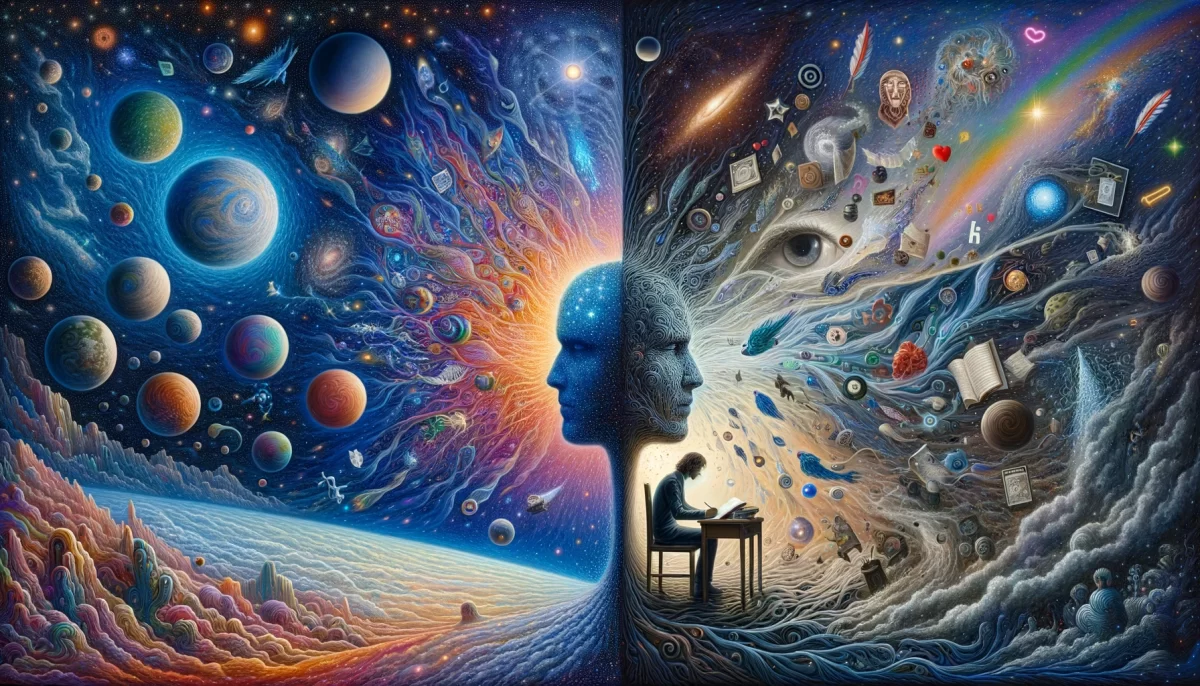

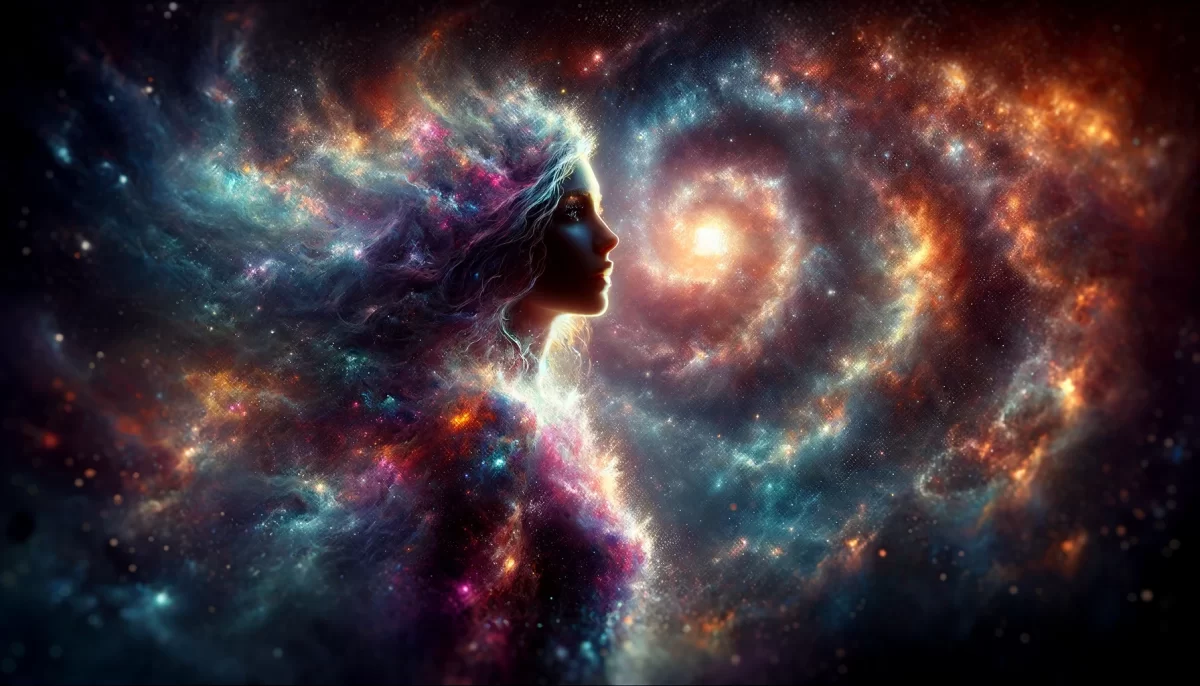
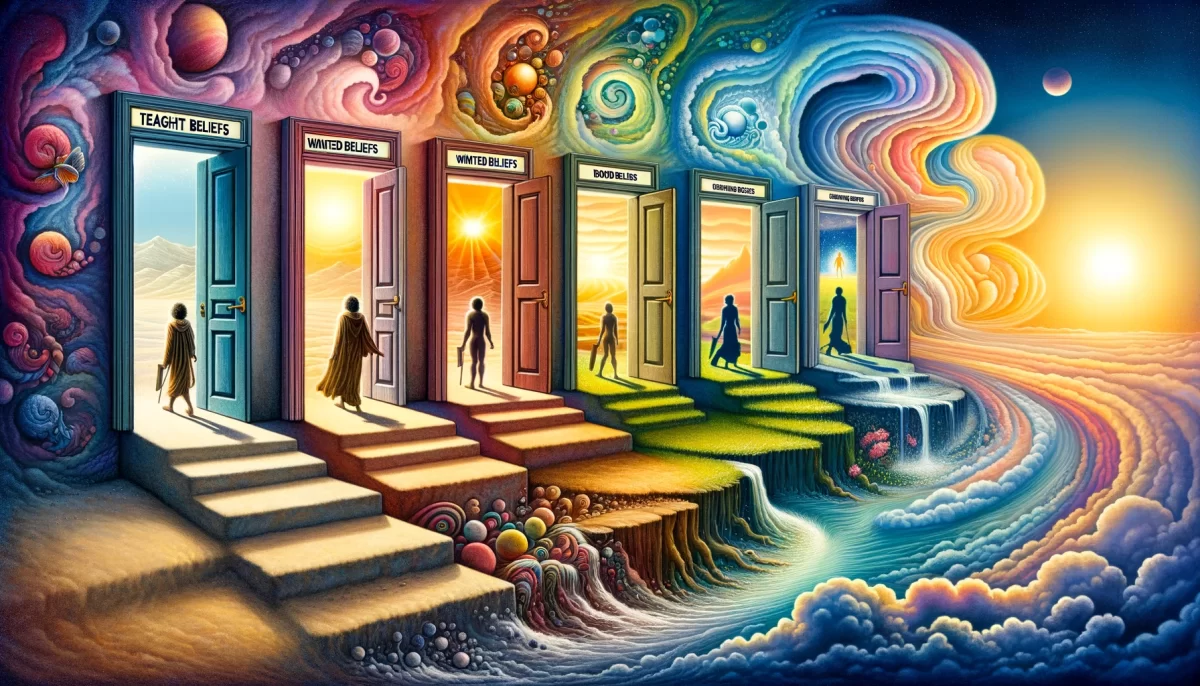
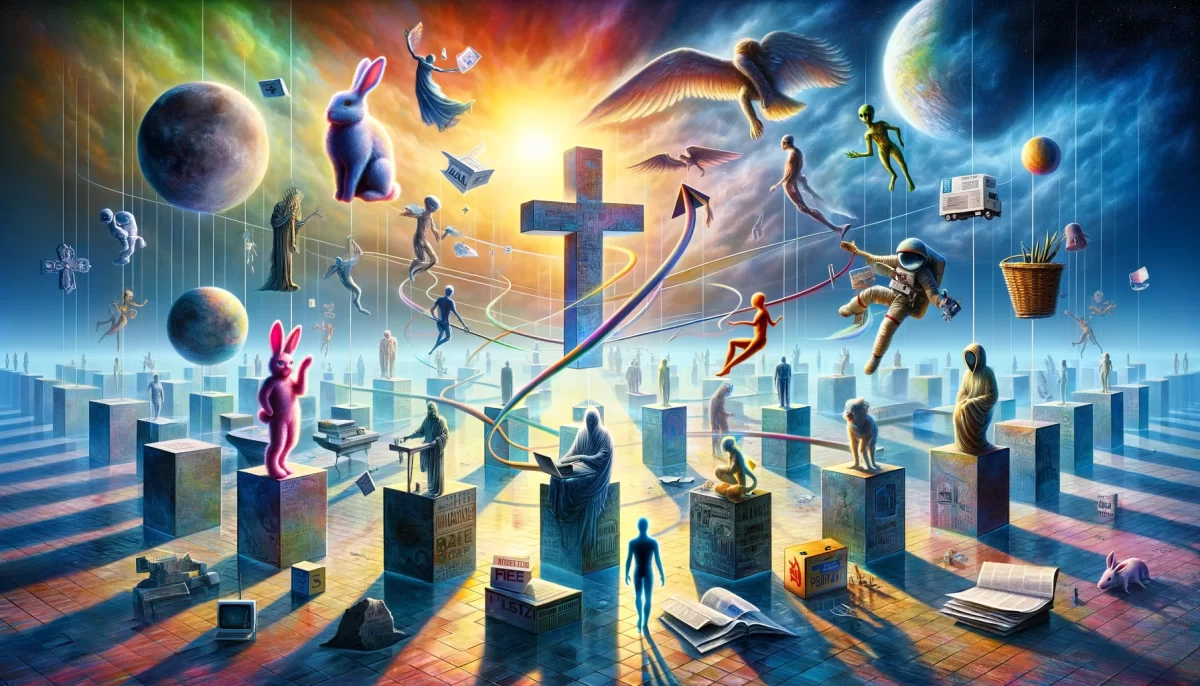

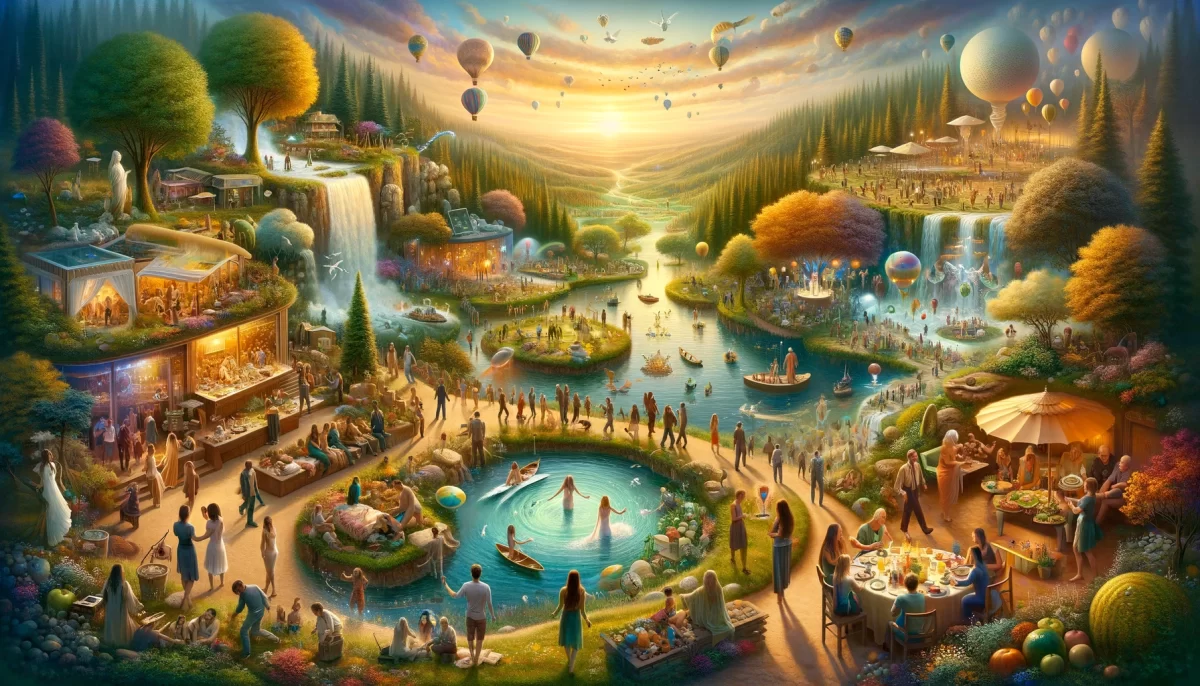
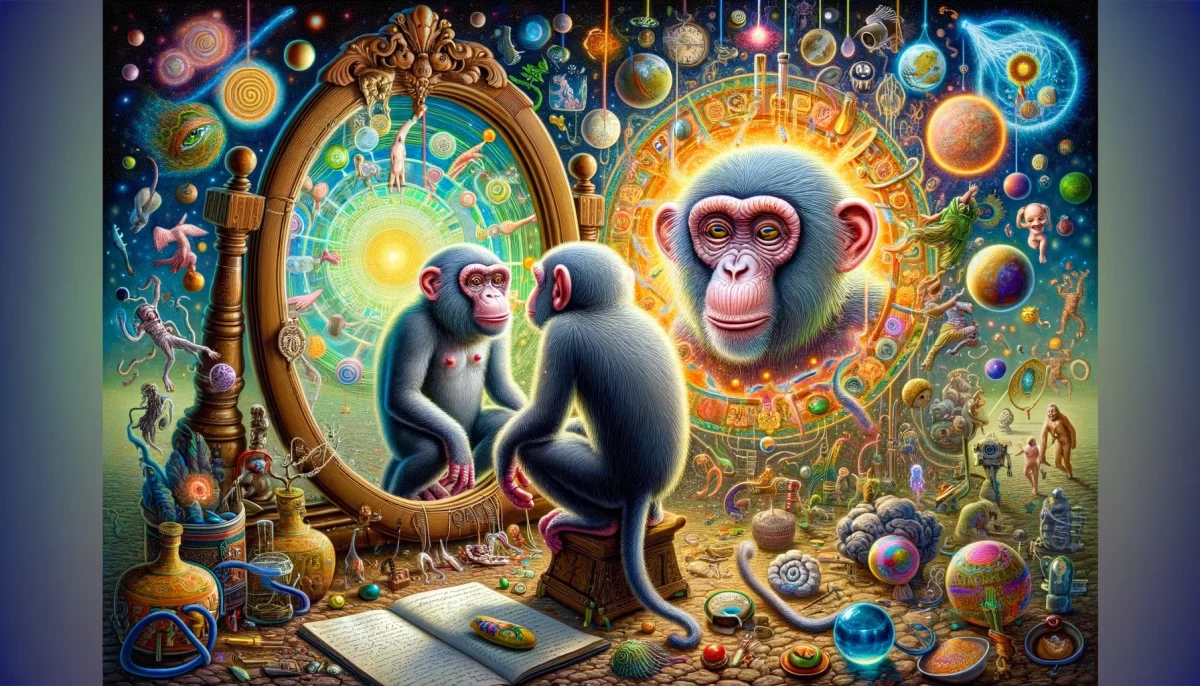
Leave a Reply